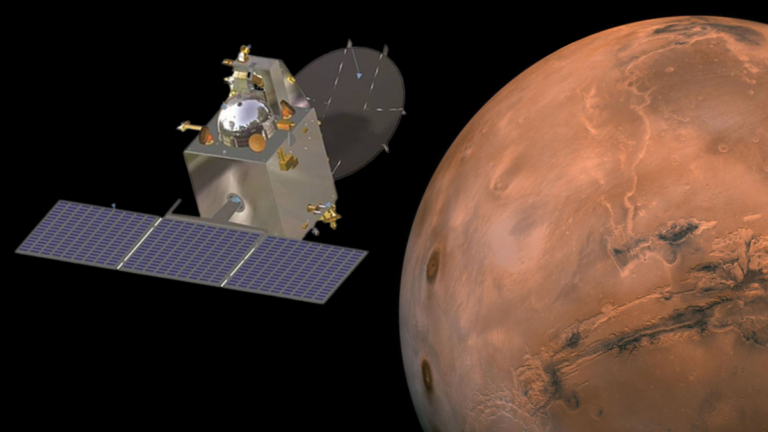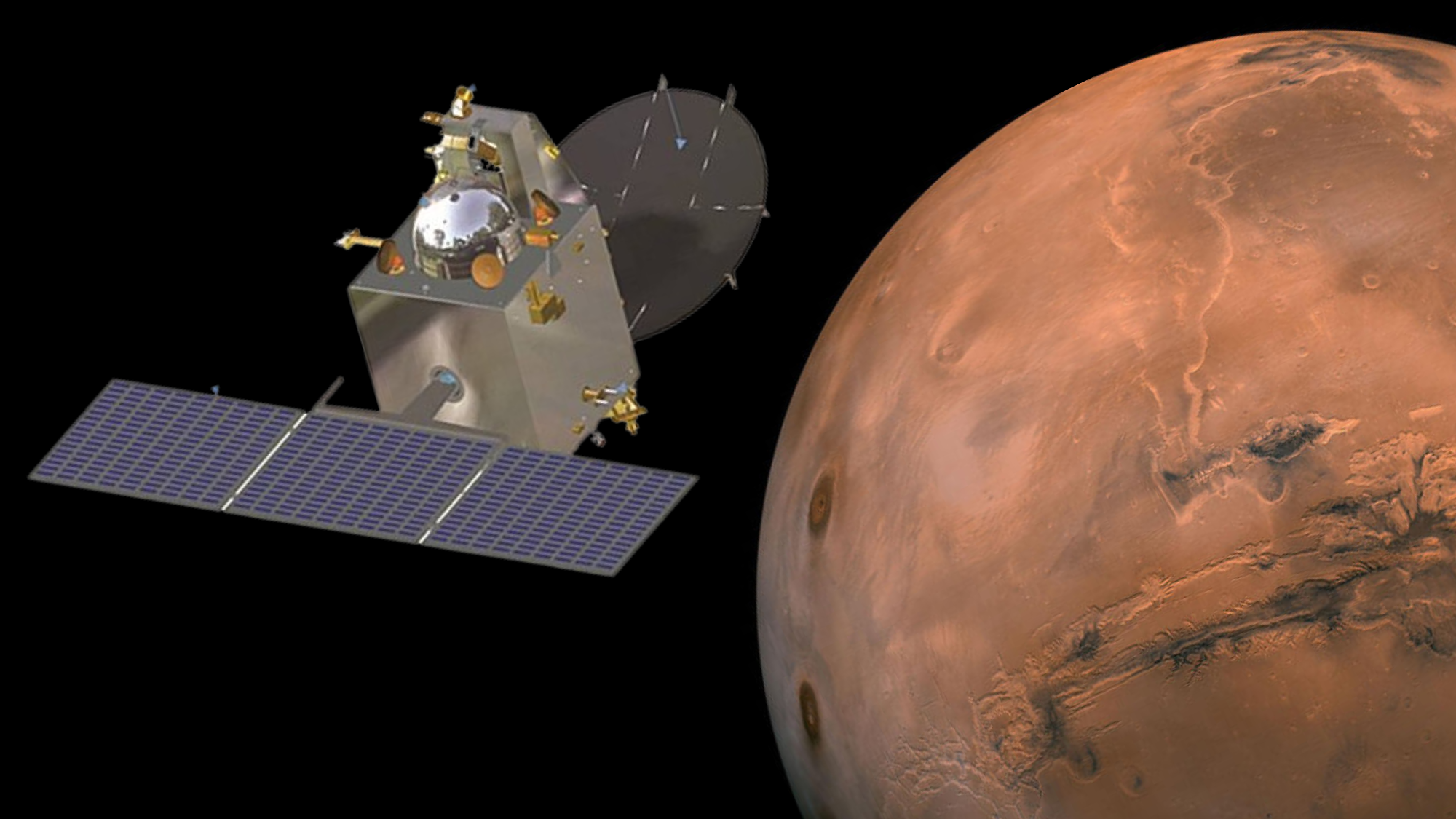
[ad_1]

India’s Mars Orbiter Mission (MOM) may have finally reached the end of its operations after eight years spent orbiting the Red Planet.
Ground stations operated by the Indian Space Research Organisation (ISRO) have lost communication with the spacecraft. The precise cause isn’t yet clear; the orbiter may have run out of propellant, MOM’s battery may drained beyond the safe operating limit, or an automated maneuver may have cut communications, according to media reports.
Having operated at Mars for eight years, MOM — also called Mangalyaan — has far exceeded its expected mission life of just six to 10 months. The craft was launched in November 2013 and entered orbit around Mars in September 2014.
Related: India’s first Mars mission in pictures (gallery)
Although ISRO has not yet released an official statement, a source with the agency told local newspaper The Hindu that “the satellite battery” has drained and “the link has been lost” with MOM.
MOM carries a 4.6 x 6-foot (1.4 x 1.8-meter) solar array wing consisting of three panels mounted on one side of the spacecraft. The array can generate 800 watts power at Mars and charges a lithium-ion battery, but the spacecraft has recently encountered a series of eclipses that could have impacted its ability to recharge.
“Recently there were back-to-back eclipses including one that lasted seven-and-half hours,” an unnamed ISRO source told The Hindu.
“As the satellite battery is designed to handle eclipse duration of only about one hour and 40 minutes, a longer eclipse would drain the battery beyond the safe limit,” another unnamed official told the paper.
MOM had come out of a long eclipse in April, but as it recovered, the spacecraft may have exhausted its remaining fuel. Upon launch, MOM carried around 1,880 pounds (852 kilograms) of fuel to power its main thruster and eight smaller thrusters used for altitude control.
There’s also a chance that the communications breakdown could be a result of MOM’s automated system bringing it out of another eclipse, according to an unnamed official’s comments in the Times of India. The system may have had the orbiter perform a roll-spin to change direction, resulting in MOM’s Earth-facing antenna pointing away from our planet and the spacecraft falling silent.
MOM had previously survived blackouts during its first and second years around Mars, recovering completely autonomously without assistance from the ground. Initial indications suggest that this new blackout is permanent, however, and multiple sources told the Times of India that whatever the cause, the spacecraft won’t be able to recover.
“Now, we are trying to ascertain the exact reason — whether it is the exhaustion of fuel or antenna being unable to communicate,” an unnamed senior scientist told the Times of India. “But one thing is for certain, we won’t be able to recover the spacecraft anymore.”
MOM was India’s first interplanetary mission and made the ISRO only the fourth space agency to achieve an orbit around the Red Planet. The spacecraft arrived at Mars just in time for it to catch the passage of Comet Siding Spring on Oct. 19, 2014.
The mission’s primary goal was to test the technology needed for interplanetary exploration and to use its instruments to study both the Martian surface and atmosphere from orbit.
The instruments on board included a color camera, a thermal infrared sensor, an ultraviolet spectrometer used to study deuterium and hydrogen in Mars’s upper atmosphere, and a mass spectrometer to study neutral particles in the outermost layers of the Martian atmosphere.
MOM also carried a sensor designed to search for methane, a molecule that, if present, could imply that life had once existed on the Red Planet. ISRO has not yet revealed that instrument’s findings.
Follow us on Twitter @Spacedotcom and on Facebook.
[ad_2]